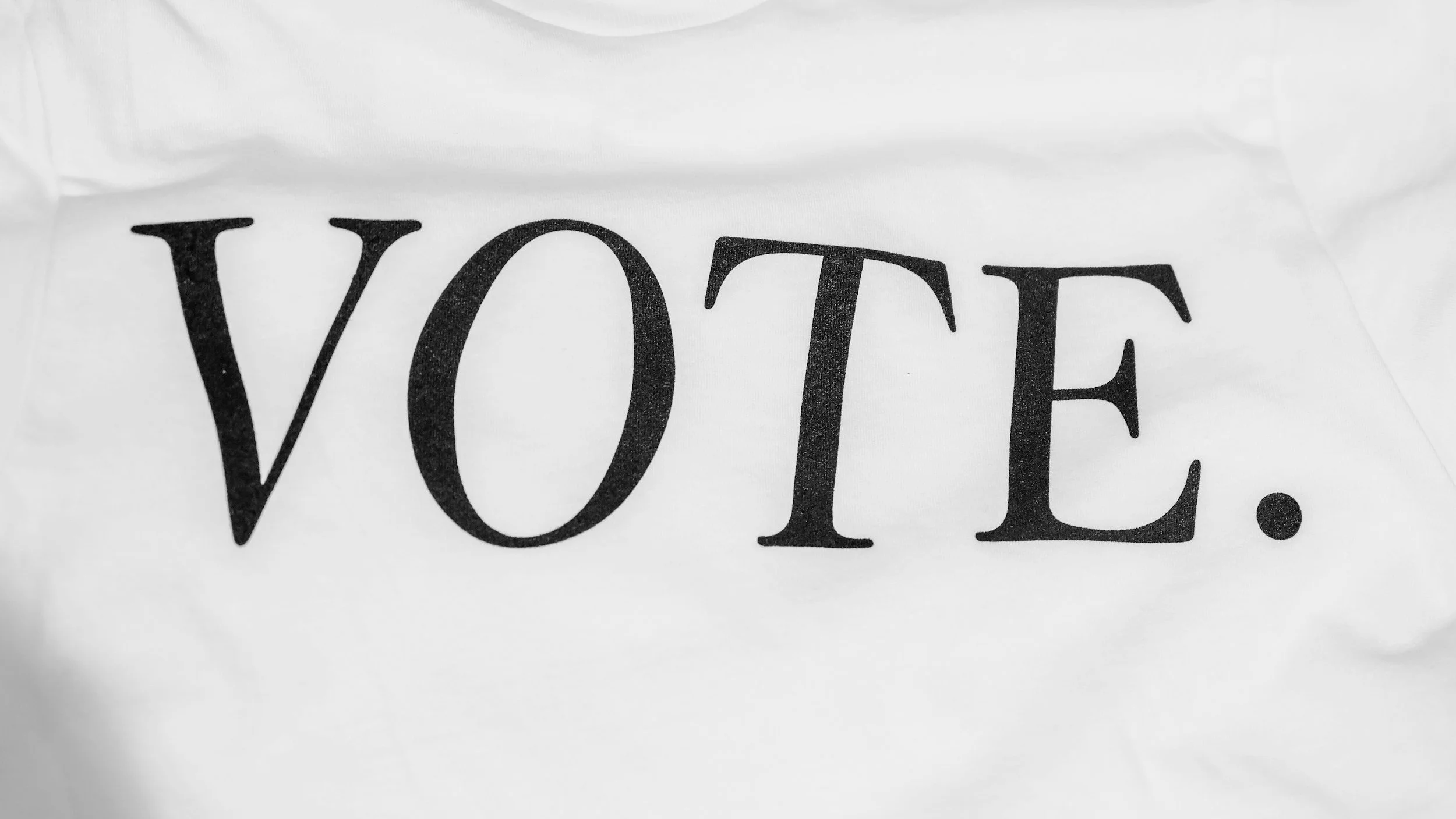A guide to voting after a felony conviction in Washington State
If you have a record and are unsure whether you can vote, contact the ACLU. Call 206.624.2180 or through our website.
AMERICAN CIVIL LIBERTIES UNION OF WASHINGTON FOUNDATION
PO Box 2728, Seattle, WA 98111-2728
STATE ELECTIONS DIVISION
800.448.4881
SECRETARY OF
You can also find the contact information for your county elections office or by calling the Secretary of State.
“Why vote
Webinar on Jan 28 on talking to voters and making the connection to why vote!
You’ve got the table. You’ve got the pens, the forms, and the stickers. Everything is ready to get your community registered to vote. And then someone comes up to you and says:
“I just don’t get it - why bother voting?”
You know the answer in your bones; it’s why you’re here, but in that moment? Your tongue is twisted. You pull out the ol’ reliable talking points about civic duty and how their voice matters, but by now, they’ve heard it dozens of times on TV and from celebrities. They nod, but it doesn’t really land. And then the moment passes, they walk away, and you’re left wondering: “What could I have said?” Come join our Jan 28 2pm webinar to untwist your tongue and know exactly what to say in those moments. With the collaborative Why Vote? Tool developed by the Right Question Institute, you’ll have a go-to tool ready at hand to connect voting to the services our community members rely on every day. At our free webinar learn how to use and integrate this tool that's already used at hundreds of nonprofits across the country with dialogue prompts and questions. And this time, know that the people you talk to will walk away making connections to their own civic power, feeling connected instead of feeling disconnected. Jan 28, 2pm ET How to Talk about the Value of Voting: Connecting to Everyday Life REGISTER HERE!
Hear from Naomi Campbell, director of the Right Question Institute’s Legal Empowerment Program and member of the Microdemocracy team, collaborating on RQI’s voter engagement, school-family partnerships, health care, and social services programs.
Small Steps, Long Game: January at Nonprofit VOTE
Tl;Dr: Small steps to start 2026: a five-minute democracy challenge, January trainings, new resources, coalition connections, and funding opportunities.
January always brings a strange question: how do we start a new year without pretending the last one didn’t happen? After everything nonprofits ran with in 2025, that question feels especially real.
January can make it seem like we’re supposed to reset overnight. But democracy, like nonprofit work, is built over time. It’s a marathon, not a sprint. Real progress comes from consistent engagement and the small, steady habits you’re already building in your communities every day.
That’s why we want you to know we’re lacing up right next to you. You’re already doing the long-distance work of democracy. The trick is not burning out at the starting line or feeling like you’re doing it alone.
Our 2026 Bite-Sized Democracy Challenge is built for the long run. Each month, you’ll receive one five-minute challenge focused on a core democratic habit, small, manageable steps that make participation feel easier and more sustainable over time.
January Bite-Sized Democracy Challenge
Step one: Mark November 3, 2026 (Election Day!) on your home, work, and/or community calendar.
Step two: Look up your state’s voter registration or primary deadline (hint: your Secretary of State’s website has you covered)
Step three: Snap a photo and send it to caroline@nonprofitvote.org
Bonus points included. Newsletter fame is possible.
Webinars
Jan 22nd, 2pm ET : Getting Started with Voter Engagement!
Our getting started series is designed for organizations with enthusiasm for voter engagement, but limited hands-on experience. These small-group sessions are intentionally crafted to go beyond traditional webinars. Expect real-time dialogue, collaborative breakout room activities, and meaningful conversations about how any nonprofit can take its first steps in the voter engagement space. Register here
Jan 28, 2 pm ET - How to Talk about the Value of Voting: Connecting to Everyday Life
Join us to learn how to use and integrate the updated Why Vote? A tool within your organization to help the people you serve find their civic voice. If you’ve ever been frustrated trying to engage disconnected voters and move past “I don’t care about voting,” come to this session! This tool has already been used at hundreds of nonprofits across the country to engage the people they serve and help them make the connections between voting and their daily lives. Register here
New from Our Team
“As the United States approaches its 250th anniversary, the nonprofit sector faces a familiar question with new urgency: is our current approach to civic participation and a healthy democracy enough to meet the scale of what communities are facing now, and what lies ahead? Will the voice of the nonprofit sector and the communities we serve be heard?”
Nonprofit VOTE’s Executive Director Brian Miller asks this question in his new piece here, arguing for more investment in nonprofits to scale civic infrastructure.
You can read more about this thought in our new report: “On the Frontlines of Democracy: America’s Nonprofits Hold the Line on Civic Infrastructure”

